
Tafilalt or Tafilet, historically Sijilmasa, is a region and the largest oasis in Morocco.

Moulay Al-Rashid ibn Sharif, known as Moulay Al-Rashid or Moulay Rachid, was Sultan of Morocco from 1666 to 1672. He was the son of the founder of the 'Alawi dynasty, Moulay Sharif, who took power in the Tafilalt region in 1631. In 1635 Moulay Rashid's half-brother Sidi Mohammed succeeded their still-living father. During his reign, Sidi Mohammed brought Tafilalt, the Draa River valley, Oujda and the Eastern Sahara region under 'Alawi rule. However, due to internal feuding, war broke out between the brothers and Sidi Mohammed was killed on the battlefield by troops of Moulay Rashid on 2 August 1664. From then on Moulay Rashid became Sultan of Tafilalt and went on to conquer Taza and assert power in Sijilmasa, capital of Tafilalt. He then became the first 'Alawi sultan of Morocco. He ended the rule of the Dilaites, a Berber movement which ruled the northern part of Morocco. After subjugating the northern coastal areas of Morocco, he also succeeded in capturing Marrakesh in 1669. He occupied the Sous and the Anti-Atlas, which solidified 'Alawi control over the entirety of Morocco except for the wild High Atlas Mountains. He re-subdued the Emirate of Tuat after their rebellion following the death of Sultan Muhammad ibn Sharif who conquered it in 1652.

The Bangladeshi Cinema, better known as Dhallywood, is the Bengali-language film industry based in Dhaka, Bangladesh. It has often been a significant film industry since the early 1970s. The dominant style of Bangladeshi cinema is melodramatic cinema, which developed from 1947 to 1990 and characterizes most films to this day. Cinema was introduced in Bangladesh in 1898 by the Bradford Bioscope Company, credited to have arranged the first film release in Bangladesh. Between 1913 and 1914, the first production company, Picture House, was opened. A 1928 short silent film titled Sukumari was the first Bengali-produced film in the region. The first full-length film, The Last Kiss, was released in 1931.
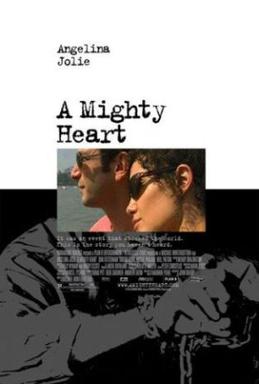
A Mighty Heart is a 2007 American drama film directed by Michael Winterbottom from a screenplay by John Orloff. It is based on the 2003 memoir of the same name by Mariane Pearl.
The Habr Awal, also contemporarily known as the Subeer Awal, and alternately romanized as the Zubeyr Awal is a major clan of the wider Isaaq clan family, and is further divided into eight sub-clans of whom the two largest and most prominent are the Sa'ad Musa and Issa Musa sub-clans. Its members form a part of the Habr Magaadle confederation. The Habr Awal traditionally consists of nomadic pastoralists, coastal people, merchants and farmers. They are historically viewed as an affluent clan relative to other Somali clans. The Habr Awal are politically and economically influential in present-day Somaliland, and reside in strategic coastal and fertile lands.

The 63rd Cannes Film Festival was held from 12 to 23 May 2010, in Cannes, France. The Cannes Film Festival, hailed as being one of the most recognized and prestigious film festivals worldwide, was founded in 1946. It consists of having films screened in and out of competition during the festival; films screened in competition compete for the Palme d'Or award. The award in 2010 was won by Uncle Boonmee Who Can Recall His Past Lives, a Thai film directed by Apichatpong Weerasethakul. This was determined by the festival's jury members who reviewed films screened in competition. American film director Tim Burton was the president of the jury for the international competition, and other members of the jury for that competition included actors, screenwriters and composers, such as Kate Beckinsale, Emmanuel Carrère, Benicio del Toro, and Alexandre Desplat. Other categories for films screened in competition that have their own separate juries for other awards are for Short Films and the Un Certain Regard category.
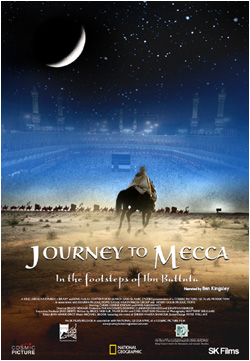
Journey to Mecca: In the Footsteps of Ibn Battuta is an IMAX dramatised documentary film charting the first real-life journey made by the Islamic scholar Ibn Battuta from his native Morocco to Mecca for the Hajj, in 1325.
Shakib Khan born 28 March 1979) is a Bangladeshi actor, producer, occasional singer, film organiser, and media personality who works in Bengali films, both in Bangladesh and West Bengal. In his career spanning about two decades, Khan has been the propeller of the contemporary film industry Dhallywood. Currently he is the highest paid actor in Bangladesh.
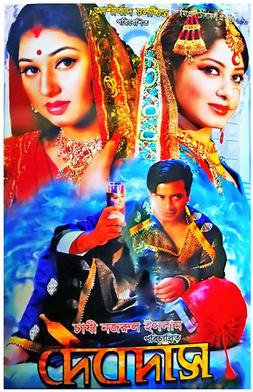
Devdas is a Bangladeshi Bengali romantic film based on the Sharat Chandra Chattopadhyay novel Devdas. It is the second Bangladeshi and fifth Bengali version of the story. It was directed by Chashi Nazrul Islam, who also directed the 1982 version, and stars Shakib Khan as Devdas, alongside Moushumi and Apu Biswas in the leading roles.
Sheikh Mohammed bin Abdulla Al Thani, known as Moe Al Thani, is a Qatari-Emirati Sheikh, Philanthropist, Management Professional and sportsman. He is known for being the first Qatari to have climbed up Mount Everest and have reached the Seven Summits, the South Pole as well as Ama Dablam.

Timbuktu is a 2014 Mauritanian-French drama film directed and co-written by Abderrahmane Sissako. The film centres on the brief occupation of Timbuktu, Mali by Ansar Dine, and is partially influenced by the 2012 public stoning of an unmarried couple in Aguelhok. Shot in Oualata, Mauritania, Timbuktu was selected to compete for the Palme d'Or in the main competition section at the 2014 Cannes Film Festival, where it won the Prize of the Ecumenical Jury and the François Chalais Prize. Timbuktu was chosen as Mauritania's submission for the Academy Award for Best Foreign Language Film, and went on to be nominated for the prize at the 87th Academy Awards; it was also nominated for the BAFTA Award for Best Film Not in the English Language at the 69th British Academy Film Awards. Timbuktu was named Best Film at the 11th Africa Movie Academy Awards, where it was nominated for ten further awards. In 2017, The New York Times ranked it the 12th best film of the 21st century so far.
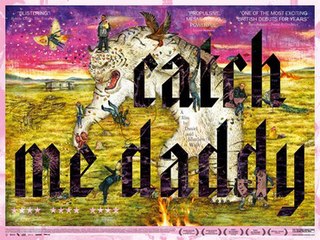
Catch Me Daddy is a 2014 British thriller film directed by Daniel Wolfe. It was screened as part of the Directors' Fortnight section of the 2014 Cannes Film Festival. The film received its British debut screening at the 2014 London Film Festival. Sameena Ahmed won the award at the festival for the Best British Newcomer. It was shown at the Leeds Film Festival in November 2014. Wolfe wrote the script with his brother, Matthew Wolfe.

The 69th Cannes Film Festival was held from 11 to 22 May 2016. Australian director George Miller was the President of the Jury for the main competition. French actor Laurent Lafitte was the host for the opening and closing ceremonies. On 15 March it was announced that Japanese director Naomi Kawase would serve as the Cinéfondation and Short Film Jury president. American director Woody Allen's film Café Society opened the festival.
Oliver Hermanus is a South African film director and writer. He is known for his films Shirley Adams (2009), Beauty (Skoonheid) (2011), The Endless River (2015), Moffie (2019), and Living (2022). Beauty won the Queer Palm Award at the 2011 Cannes Film Festival.
Al Faris is a play inspired by the poems of Sheikh Mohammed bin Rashid Al Maktoum, UAE Vice President and Prime Minister and Ruler of Dubai, in cooperation with the Rahbani brothers.

Óliver Laxe Coro is a French-born Spanish film director, screenwriter and actor of Galician ancestry. His debut feature film You All Are Captains premiered at the 2010 Cannes Film Festival, where it won the FIPRESCI Prize. His third film Fire Will Come was screened in the Un Certain Regard section at the 2019 Cannes Film Festival, where it won the Jury Prize.
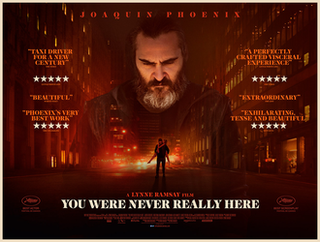
You Were Never Really Here is a 2017 neo-noir crime psychological thriller film written and directed by Lynne Ramsay. Based on the 2013 novella of the same name by Jonathan Ames, it stars Joaquin Phoenix, Ekaterina Samsonov, Alex Manette, John Doman, and Judith Roberts. In the film, a traumatized mercenary named Joe (Phoenix) is hired by a politician to find and rescue his daughter who has been kidnapped by a human trafficking network, which Joe is instructed to destroy by any violent means. The film was co-produced between the United Kingdom, France and the United States.

The Nothing Factory is a 2017 Portuguese drama film directed by Pedro Pinho, whose prior works were documentaries. It was screened in the Directors' Fortnight section at the 2017 Cannes Film Festival and the Bright Future section at the International Film Festival Rotterdam. At Cannes it won the FIPRESCI Prize.

Rajneeti (transl. Politics) is a 2017 Bangladeshi political thriller film. The film directed by Bulbul Biswas and produced by Ashfaq Ahmed under the banner of Arrow Motion Arts. The film story and screenplay written by Bulbul Biswas himself and dialogue by Delowar Hossain Dil. It feature Shakib Khan, Apu Biswas, Anisur Rahman Milon, Sadek Bachchu, Amit Hasan in lead roles. The film soundtrack is composed by Habib Wahid, Fuad al Muqtadir and Pritam Hasan. It was released on June 26, 2017 on the occasion on Eid al-Fitr in Bangladesh.
Ahmed Hammoud is a Moroccan actor. He is best known for the roles in the films 13 Hours, Mimosas and Zanka Contact.














